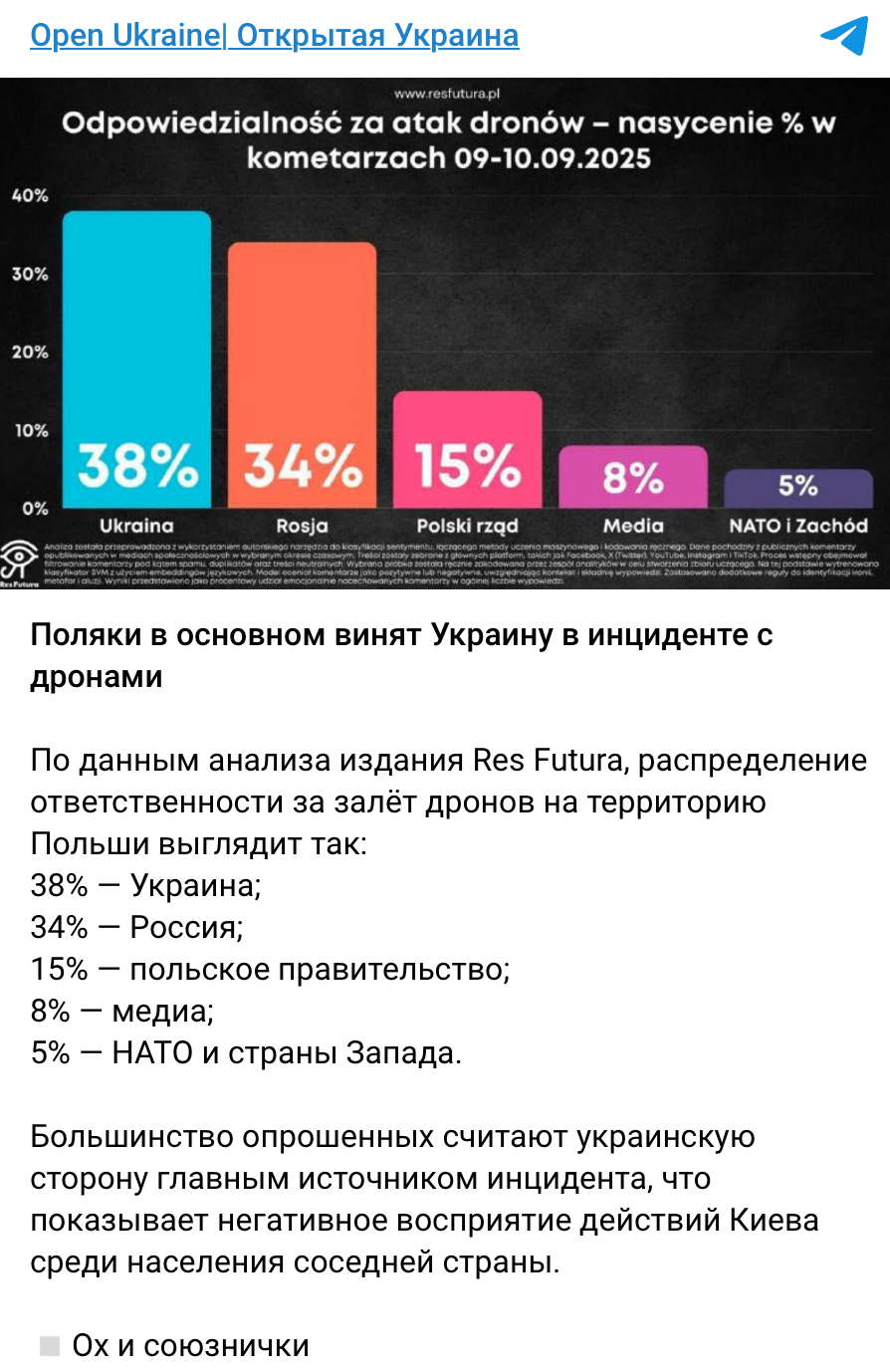Verification within Meta’s Third-Party Fact-Checking Program
Information is being spread online claiming that Poles mostly blame Ukraine for the drones entering their territory on the night of 10 September 2025. This claim is supported by the results of a study by the think tank Res Futura, according to which 38% of respondents allegedly attribute responsibility to Ukraine, 34% to Russia, and 15% to the current Polish government.
This is manipulation. These are not the results of a representative survey, but an analysis of comments on social media. It is unknown what share of these comments was written by bots. 
Screenshot of the post
On 10 September 2025, during Russia’s attack on Ukraine, at least 19 drones entered Polish airspace. Foreign Minister Radosław Sikorski and Prime Minister Donald Tusk reported that the drones were Russian. Meanwhile, Russia’s Ministry of Defense claimed that Russia did not plan to attack Poland, and that the maximum range of the drones that crossed the Polish border was 700 km, implying that they could not have been launched from Russian territory. Later, fact-checkers from the EUvsDisinfo project debunked this.
What is the Res Futura study about?
The think tank Res Futura, based on monitoring Polish social media on 10 September 2025, processed 180,000 mentions of this drone attack and identified the main narratives and their tone. Among the key narratives: “this is a provocation by Ukraine,” “Russia is testing NATO,” “the Polish government is incompetent,” “this is media propaganda,” and “NATO will not protect us.” Analyst and head of the center, Michał Fedorowicz, stated in a comment to the Polish outlet Money.pl: “This is not a survey — this is a simple quantitative analysis that shows the narrative structure of the comments.”
Why does this study not represent the opinion of the Polish population?
An analysis of comments does not reflect the opinion of the whole population, because, as a rule, comments on social media are left by an active minority, while the rest consume content passively. Accordingly, the opinions of those who do not comment, as well as those who do not use social media at all, will not be reflected in the dataset.
Moreover, it is completely unknown what share of these comments was written by bots. The text of the study directly states that “the analysis of Polish social media content indicates high saturation with repetitive narratives, which is characteristic of coordinated activities rather than solely spontaneous reactions of citizens.” This means that the authors also assume that a significant portion of the comments could have been written by bots. However, at the same time, according to Fedorowicz, it should be acknowledged that such comments are not only posted by bots but also by real people.
Fedorowicz believes that this case is part of Russia’s information war against the West, and at this stage, Poland is losing it. In his view, Russia aims to change the image of Ukrainians in the eyes of Poles, in particular turning them from victims into “greedy warmongers who take our money and also want us to fight for them.”
The unreliability of these data is also indicated by the fact that in the center’s report for the following day, 11 September, already 41% of comments mentioned Russia’s responsibility; Ukraine’s — 24% (compared to 38% the previous day). Even assuming that real people wrote all the comments, these figures are merely a snapshot of sentiment in a small, non-representative segment of the audience, which can change rapidly and dramatically.
